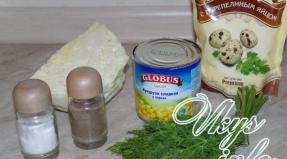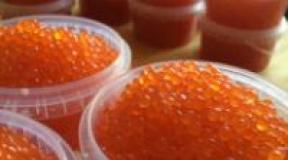Alcohol intoxication first aid. Hangover medications
Alcohol poisoning in Russia occupies a leading position among household poisonings. Alcohol accounts for over 60% of all fatal poisoning. Most of the deaths (95% -98%) occur before medical attention is provided. How to recognize alcohol poisoning, and what measures should be taken to avoid tragic consequences?
Ethanol(ethyl or wine alcohol) - a chemical substance of moderate toxic activity, colorless, volatile, flammable. Mixes up with water in any quantity, easily dissolves in fats. It spreads quickly throughout the body, easily penetrates biological membranes.
Interesting facts about alcohol
- Ethanol is a natural substance for our body. Normally, ethanol is formed during the metabolism of various substances, as well as during fermentation in the intestine. However, its concentration is minimal (0.003 g / l) and does not pose a threat to health.
- 20% of the ethanol taken is absorbed in the stomach, the remaining 80% is absorbed in the small intestine.
- On an empty stomach, half of the dose of ethanol taken is absorbed into the blood in 15 minutes. On average, after 1 hour 30 minutes, the maximum concentration of ethanol is observed in the blood.
- Strong (more than 30 degrees) and carbonated alcoholic drinks are absorbed into the blood most quickly.
- The rate of absorption of ethanol increases with repeated doses and with stomach diseases (gastritis, peptic ulcer).
- Food in the stomach reduces the rate of absorption of ethanol. In this regard, the consumption of alcoholic beverages on a full stomach is one of the preventions of alcohol poisoning. As a rule, one-time consumption of 0.5 liters of vodka by adults will cause alcohol poisoning. However, the same amount of vodka drunk during the day will only keep the state of intoxication.
- With its good ability to dissolve in fats, ethanol easily penetrates the body through the skin. Fatal cases of poisoning of children when using alcoholic extracts of plants for compresses and wraps have been described.
- Ethanol easily penetrates the placental barrier and spreads throughout the fetus. The toxic effect of alcohol on the fetus is much stronger than on the mother's body.
- On average, the lethal dose of alcohol is 300 ml of 96% ethanol in a single dose.
- Ethanol is excreted from the body through three main pathways: 1) 2-4% of ethanol is excreted through the kidneys, 2) 3-7% through the lungs, 3) up to 90-95% of ethanol is processed in the liver, where it is ultimately broken down to carbon dioxide and water.
What are the symptoms and signs of alcohol poisoning?

The first signs of alcohol poisoning
Drinking alcohol can cause three different conditions:| State | Characteristic |
| The patient's consciousness is preserved, but slight disturbances may be observed. At first, a person experiences high spirits, emotional excitement, and euphoria. Then the thinking processes slow down, both mental and physical activity decrease, consciousness is suppressed, the person becomes lethargic, sluggish, drowsy. |
| In the case of coma, they talk about alcohol poisoning. |
| The toxic effect of the decay products of ethanol on the body, while ethanol itself in the blood is not determined. |
The first symptoms of alcohol poisoning and the mechanisms of their occurrence
| What is amazed? | Symptoms | Mechanism of occurrence |
|
|
|
|
|
|
|
| A patient vomiting, diarrhea loses a lot of fluid from the body. In addition, due to an increase in the permeability of the vascular wall, fluid from the vascular bed passes into the intercellular space. To replace the volume of circulating blood, the body includes a number of compensatory mechanisms: increased heart rate, narrowing of peripheral vessels, thus, blood is redistributed to more important organs. |
|
|
|
|
|
|
|
|
|
Severe alcohol poisoning
In severe cases, the patient falls into a coma, that is, loses consciousness and does not respond to external stimuli (patting on the cheeks, loud noises, tingling, etc.). The concentration of ethanol in the blood of 3 g / l or more causes coma.There are 2 phases of alcoholic coma: superficial and deep coma.
| Coma phase: | Symptoms |
|
|
|
|
What determines the severity of alcohol poisoning?
| Factor | Why? |
| When large doses of alcohol enter the body, especially at one time, the liver (the main organ responsible for the detoxifying function of the body) simply does not have time to process it. Ethanol, as well as the products of its incomplete decay, accumulate in the blood and damage vital organs (brain, kidneys, liver, heart, etc.). A healthy liver of a man weighing 80 kg in 1 hour completely processes only 8 grams. pure alcohol. For example, 100 ml of 40-degree vodka contains 31.6 grams. pure alcohol. |
| Children and the elderly are most sensitive to the effects of alcohol. In children, the mechanisms of neutralization have not yet been fully formed in the liver. In older people, these mechanisms no longer perform their function insufficiently. |
| Most often, alcohol intolerance and the rapid development of alcohol poisoning occurs among people of the Mongoloid race. They have a genetically determined low activity of a special enzyme necessary for the complete breakdown of ethanol (aldehyde dehydrogenase). Intoxication occurs as a result of the accumulation of the product of incomplete decomposition of ethanol (acetaldehyde). |
| All of these conditions reduce the functions of the liver, including the detoxifying function. |
| The toxic effect of ethanol increases when taken simultaneously with the following drugs: hypnotics, tranquilizers, antidepressants, pain relievers (morphine, omnopon), etc. |
| The toxic effect of ethanol increases due to impurities and additives: methyl alcohol, higher alcohols, aldehydes, furfural, ethylene glycol, etc. |
| On an empty stomach, half of the dose taken is absorbed into the blood in 15 minutes. The consumption of alcohol with food, especially with carbohydrate food, significantly reduces the rate of its absorption and thereby reduces the rapid increase in the concentration of ethanol in the blood. |
How to drink without getting drunk and avoid a hangover? There are many "proven" folk remedies, but, unfortunately, not all of them work as they should. In the arsenal of medicine there is a reliable remedy - PEPIDOL.
With PEPIDOL, everything is simple: they took 50 milliliters of solution 15-30 minutes before the meal and 50 milliliters in the morning. Drunkenness after taking alcohol, of course, occurs, but due to the fact that PEPIDOL envelops the intestinal wall, this happens much more slowly. In addition, PEPIDOL is an excellent sorbent. It promotes the elimination of poisons, toxins, and products of alcohol metabolism from the body. He seems to have drunk, but you feel like a "cucumber". It turns out that PEPIDOL is something like a means for a real scout, when after drinking you can easily control everything.
It should be noted that PEPIDOL works even when the hangover has already come. In this situation, you also need to take 50 milliliters of solution and 50 milliliters after three hours.
Poisoning with alcohol substitutes
 Alcohol surrogates- these are various types of liquids that are not designed to be consumed internally, however, they are used instead of alcoholic beverages to achieve a state of intoxication.
Alcohol surrogates- these are various types of liquids that are not designed to be consumed internally, however, they are used instead of alcoholic beverages to achieve a state of intoxication. Types of surrogates:
- Colognes, lotions, various medicinal tinctures (hawthorn, motherwort, etc.)
- Technical fluids (brake fluid, antifreeze, windshield wipers, etc.)
- Methyl alcohol, ethylene glycol are the most dangerous substitutes.
Methyl alcohol poisoning
Methyl alcohol is found in: Car window cleaner and solvents. In the body, methyl alcohol is oxidized to formaldehyde and formic acid, which carry out the main toxic effect. Symptoms of poisoning occur 12-24 after consumption. Symptoms: headache, nausea, persistent vomiting, abdominal pain, dizziness, malaise, visual impairment(flies, fog in front of the eyes, double vision, blindness). Methyl alcohol poisoning very often affects the retina and optic nerve, which in many cases leads to blindness. Persistent pupil dilation in case of poisoning is considered an unfavorable prognostic sign. In severe cases, death occurs from respiratory paralysis and cardiovascular disorders.Ethylene glycol poisoning
Ethylene glycol is found in: brake fluid, antifreeze, solvents, glass cleaner. When ethylene glycol enters the body during its decomposition, glycolic and oxalic acids are formed, which determine the severe course of poisoning. Oxalic acid forms insoluble salts that clog the kidney tubules, causing acute renal failure. Severe symptoms of poisoning occur 4-8 hours after ingestion of ethylene glycol. Symptoms: nausea, repeated vomiting, mental and physical agitation, tremors, convulsions, depression of consciousness, coma. 2-3 days after poisoning, symptoms of acute renal failure appear: acute pain in the lower back, abdomen, urine of the color of "meat slops", a decrease in the amount of urine.What to do in case of alcohol poisoning?
| Do I need to call an ambulance? |
|
| Not really | Why? |
| Yes need! This should be done as early as possible.
|
|
First aid for alcohol poisoning
| What to do? | How? | What for? | |
| Ensure airway patency |  |
|
|
| Correctly lay the patient down, fix the tongue |   |
|
|
| For cardiac arrest and respiratory arrest, perform chest compressions and artificial respiration |  |
|
|
| Regain consciousness if the patient is unconscious |  |
|
|
| Induce vomiting (if the patient is conscious!) |  |
|
|
| Perform a gastric lavage |   |
|
|
| Warm the patient |  | Place in a warm room, wrap up with a blanket, dress, etc. |
|
| Accept adsorbent(a substance capable of absorbing various types of toxins) activated carbon white coal, polysorb, entorosgel, etc. |  |
|
|
| Take substances that accelerate the neutralization and elimination of ethanol from the body |  |
2) vit. B6 (pyridoxine) 3 ml-5%; 3) vit. C (ascorbic acid) 5-10ml-5%; 4) 10-20 ml 40% glucose Administered intravenously.
|
|
| Restore water and mineral balance |  | Drippers:
|
|
| Accept Hepatoprotectors |  |
|
|
| In case of poisoning methyl alcohol or ethylene glycol drink ethyl alcohol |  | For the first time, hours of poisoning to drink high-quality strong alcohol:
| Ethyl alcohol acts as an antidote, it stops the breakdown of methyl alcohol into toxic substances (formic acid and formaldehyde). 4-methylpyrazole (pyrosol, fomepizole) is the newest antidote for poisoning with methyl alcohol and ethylene glycol. The drug reduces the activity of the liver enzyme (alcohol dehydrogenase), thereby interrupting the formation of toxic substances from the above alcohols. |
What can not be done in case of alcohol poisoning?
- Putting the patient on his back, there is a great risk that he will choke on vomit
- Give alcohol again unless it is methyl alcohol or ethylene glycol poisoning
- Take a cold shower. With alcohol poisoning, thermoregulation processes are disturbed, the body already suffers from heat loss. A cold shower can only make the situation worse.
- Forcing the victim to stand up and walk. At the time of poisoning, all organs and systems are working in an extreme mode, and any additional stress can lead to their damage.
- Do not leave the patient alone. For example: the victim may lose consciousness at any time, and suffocate if the tongue falls.
- Do not induce vomiting, do not perform gastric lavage if the patient is unconscious (at home). There is a high risk of ingestion of gastric juice into the respiratory tract and the development of acute respiratory failure.
Complications of alcohol poisoning
- Acute toxic hepatitis
- Acute liver failure
- Alcoholic delirium ("delirium tremens"), delirium, hallucinations
- Mendelssohn's syndrome(Mendelssohn's syndrome is a serious condition in which acute respiratory failure develops due to the ingestion of gastric juice into the respiratory tract). In case of alcohol poisoning, the syndrome often develops in case of ingestion of vomit into the respiratory tract.
Prevention of alcohol poisoning

- Do not drink alcohol on an empty stomach
- Do not drink alcohol in large doses
- Do not drink alcohol for diseases of the gastrointestinal tract, overwork, lack of nutrition
- Do not drink alcohol while taking medications (antidepressants, sleeping pills, pain relievers, etc.)
- Eat a heavy meal before drinking
- Having a snack after drinking a dose of alcohol
- Try not to combine different alcoholic beverages
- Try to take alcoholic beverages in ascending degree
- Do not drink low-quality alcoholic beverages
- The best prevention is NOT drinking at all!
Alcohol poisoning is a condition that occurs after a large amount of alcohol consumed. It can be severe and even fatal. As a rule, large doses of alcoholic beverages cause nausea, vomiting in a person, and in some cases - a violation of the heart and respiratory rhythms. In the event that alcohol poisoning is classified as severe, then the person may fall into a coma, or even die.
As a rule, alcohol poisoning occurs as a result of excessive consumption of various alcoholic beverages. But in medicine, there are cases when a similar diagnosis is made to people who either accidentally or deliberately drank industrial or household liquids that contain alcohol.
In the event that a person is diagnosed with alcohol poisoning, then he must immediately be sent to the hospital. It is not worth waiting for everything to resolve by itself. As soon as any of the following symptoms of poisoning appear, you must immediately call an ambulance.
Symptoms of alcohol poisoning

In the event that qualified medical care is not provided very quickly, the person may die. The reasons for this may be:
1 Very severe dehydration of the human body, which can lead to seizures, as well as such damage to the brain that will become irreversible and can eventually lead to death;
2 There is a great opportunity to drown in your own vomit;
3
 Blood sugar levels are markedly reduced, which can lead to seizures;
Blood sugar levels are markedly reduced, which can lead to seizures;
4 Breathing becomes very slow and there is a possibility that it can stop at any moment;
5 A person has a very low body temperature, which can also cause death;
6 The heart begins to work irregularly, which can also be fatal.
And in the event that medical assistance is provided on time, then the person will not only be saved, but the increase in alcohol poisoning will also be prevented.
Causes of alcohol poisoning
 Today, several types of alcohols are used, which can become the causes of alcohol poisoning. These alcohols have different chemical compositions.
Today, several types of alcohols are used, which can become the causes of alcohol poisoning. These alcohols have different chemical compositions.
Ethanol... This includes ethanol, wine alcohol. It is he who is found in alcoholic beverages, as well as in colognes, mouthwash, in some medicines.
Methyl alcohol... This is methanol, wood alcohol. It is most commonly found in antifreeze, some solvents, and other technical fluids.
Isopropyl alcohol... It is found in some cleaning products for shoes, clothes, dishes.
How to reduce the likelihood of alcohol poisoning?
Before drinking alcohol, you should try to reduce the likelihood of alcohol poisoning. This requires:
1 Check how the excise stamp is glued (it must be intact and glued exactly);
2
 Having carefully examined the bottle, you should make sure that it, as well as the sticker, completely repeats the same design as shown on the Internet site belonging to this manufacturer;
Having carefully examined the bottle, you should make sure that it, as well as the sticker, completely repeats the same design as shown on the Internet site belonging to this manufacturer;
3 Even if there is a strong smell of an alcoholic beverage, there should be no smell of alcohol;
4 Pay attention to the color of the liquid. In the event that this is not a liquor, then the liquid should be transparent, no sediment should be observed in the bottle.
Now, if you carefully examine the bottle before drinking on all of the above points, then alcohol poisoning, most likely, will not occur.
How much do you need to drink for alcohol poisoning to appear?
 If food products are digested slowly and are absorbed into the blood for a long time, then alcohol enters the bloodstream very quickly. But it will take quite a long time to remove alcohol from the human body. But this procedure depends on a wide variety of factors, ranging from age to the amount of alcohol consumed. It is equally important to know if the patient is in a binge state.
If food products are digested slowly and are absorbed into the blood for a long time, then alcohol enters the bloodstream very quickly. But it will take quite a long time to remove alcohol from the human body. But this procedure depends on a wide variety of factors, ranging from age to the amount of alcohol consumed. It is equally important to know if the patient is in a binge state.
It is known that the liver fights mainly with alcohol enzymes. She transforms these enzymes. But the liver does this important thing not so quickly. So, for example, to transform just one drink of alcohol taken, the liver will need one hour of intensive work. And what is a drink? In the West, one drink is 12 ounces (or 355 milliliters) of beer, or five ounces (44 milliliters) of 80% alcohol. If you take more alcohol within one hour, then the liver has to work longer, and alcohol begins to concentrate in the blood.
First aid for alcohol poisoning
 Actions aimed at providing first aid primarily depend on the degree of intoxication. In the event that a person cannot stand on his feet, but at the same time is conscious, then plan number 1 should be applied. The first thing to do is induce vomiting. This should be done in any way available to you. Then you should rinse the stomach, for this you should give just cool water without anything. The bigger, the better. And then this water will have to be pulled out.
Actions aimed at providing first aid primarily depend on the degree of intoxication. In the event that a person cannot stand on his feet, but at the same time is conscious, then plan number 1 should be applied. The first thing to do is induce vomiting. This should be done in any way available to you. Then you should rinse the stomach, for this you should give just cool water without anything. The bigger, the better. And then this water will have to be pulled out.
After the stomach is flushed, enterosorbents must be given to the drunk. The simplest of these is activated carbon. It should be drunk at least one package. In the event that the patient after these procedures has become somewhat easier, then you can end there.
 In the same case, if the person's condition is very serious, that an alcoholic coma has occurred, then plan number 2 should be used. In this case, it is very dangerous to induce vomiting, as a person can simply choke in it. Likewise, it is impossible to flush the stomach. In this case, you should carefully clear the upper respiratory tract from saliva, mucus, vomit. The tongue should be fixed, and if the patient's breathing is depressed, it is necessary to start artificial respiration. It will not be superfluous to give the patient a breath of ammonia. But the next step should definitely be the same - calling an ambulance.
In the same case, if the person's condition is very serious, that an alcoholic coma has occurred, then plan number 2 should be used. In this case, it is very dangerous to induce vomiting, as a person can simply choke in it. Likewise, it is impossible to flush the stomach. In this case, you should carefully clear the upper respiratory tract from saliva, mucus, vomit. The tongue should be fixed, and if the patient's breathing is depressed, it is necessary to start artificial respiration. It will not be superfluous to give the patient a breath of ammonia. But the next step should definitely be the same - calling an ambulance.
Specialists provide specialized intensive care, that is, atropine will be injected subcutaneously, as well as solutions of a certain concentration of ascorbic acid and glucose. If necessary (that is, according to indications), drugs can be administered that stimulate the autonomic centers of the central nervous system. If the patient is very agitated, then he should enter sedatives. But all this is done in a hospital setting (most often, in intensive care).
What should not be done in case of alcohol poisoning?
1
 In no case should the patient be put on his back, as he may choke on his own vomit.
In no case should the patient be put on his back, as he may choke on his own vomit.
2 Alcohol should not be given. True, this should not be done if the poisoning did not occur with ethylene glycol or methyl alcohol.
3 Do not take a cold shower. The fact is that at the moment the human body has already lost a lot of heat. A cold shower at the moment can only harm the patient.
4 You cannot try to put the patient on his feet, and even more so - walk. At this moment (at the moment of poisoning) all human organs are already working in an extreme mode for them. And any additional stress can be fatal for them.
5 The patient should not be left alone at this time. Indeed, at any moment he can lose consciousness, and in this state he can suffocate due to a sunken tongue.
6 At home, and even more so if the patient is unconscious, you can neither rinse the stomach, nor induce a gag reflex.
Complications of alcohol poisoning
1

2 The patient may develop acute liver failure.
3 Acute pancreatitis.
4 Delirium, alcoholic delirium (popularly - "white pea") hallucinations.
5 Mendelssohn's syndrome may develop. This is a very serious condition that develops as a result of gastric juice entering the respiratory tract. This condition is characterized by acute respiratory failure. If a patient has this syndrome, then, most often, it develops due to the fact that vomit has entered the respiratory tract.
How to avoid alcohol poisoning?
1 Alcohol should not be taken on an empty stomach.
2
 You can not drink it in large doses.
You can not drink it in large doses.
3 In the event that a person suffers from diseases of the gastrointestinal tract, is malnourished or overworked, then you should also not take alcohol.
4 In the event that a person is taking medications (sleeping pills, antidepressants, pain relievers), it is also not worth taking alcohol.
5 Before drinking alcohol, you should eat well.
6 After each dose of alcohol you have drunk, you should have a solid snack.
7 It is advisable to drink only one alcoholic beverage, you should not combine them.
8 If you have to drink several drinks, then they should be consumed as the degree increases.
9 You should not buy and consume low-quality alcohol.
10 But the best prevention is only one thing - do not drink alcohol at all!
The cause of alcohol poisoning is an excessive amount of drink or the use of a surrogate with substances that are not suitable for internal consumption. Mild intoxication can be treated at home without the involvement of doctors. A severe form threatens kidney and liver failure, pulmonary edema, alcoholic coma, respiratory arrest - delay will lead to death, therefore, urgent hospitalization of the patient is needed.
Symptoms of alcohol poisoning
Alcohol is food and technical. The first is used to create spirits - wine, vodka, gin, beer, etc. In moderate doses, it causes intoxication, in the absence of regularity of use, it is relatively safe. Poisoning occurs when the norm is exceeded, depending on age, gender, weight, general well-being of a person.
The industrial product is toxic, it is forbidden to ingest it in any quantity. But unscrupulous manufacturers use methanol and ethylene glycol, since it is cheaper than ethyl alcohol. Alcoholics use alcohol-containing cosmetic and technical preparations, to which they get free access. The most severe cases of intoxication are associated with children who, out of curiosity, try poisonous drugs left by their parents inadvertently.
Poisoning with food and industrial alcohol have a similar clinical picture. But in the latter case, the symptoms will be more severe, the disruption of the internal organs is faster. This is due to the fact that the oxidation of surrogates is 5 times slower, the body cannot quickly and safely process the product. As a result, intoxication occurs:
- Light poisoning. Symptoms are similar to severe intoxication. The most common symptoms are nausea and vomiting. The person remains conscious.
- Moderate intoxication. Symptoms of selective psychotropic, neurotoxic, nephrotoxic, metabolic disorders appear.
- Severe poisoning. It is characterized by the development of hepatic renal failure, CNS damage with cerebral edema and metabolic acidosis.

Alcohol poisoning can occur only with absorption into the blood (this is how the product is spread throughout the body). But it is worse if intoxication is accompanied by a burn of the mucous membranes of the esophagus, stomach (occurs with an increased concentration of alkali and acid in the product taken). This accelerates the penetration of toxic substances into the blood, violates the integrity of internal organs, leads to internal bleeding, tissue death.
Poisoning with ethyl alcohol
Ethanol (ethyl or wine alcohol, methylcarbinol) is an active ingredient in all alcoholic beverages. It is forbidden to consume it in pure form (in vodka and gin - no more than 45% C2H6O). The lethal concentration of alcohol in the blood for an adult man is 5–8 g / l. A single dose leading to severe intoxication is 12 g / kg (this is about 300 ml of 90% ethanol), but in people with chronic alcoholism, the tolerance to the substance is slightly higher. For children, a dose of 10-15 ml of 90% alcohol is fatal in most cases.

In case of first-degree poisoning, dizziness, nausea, and vomiting are noted. In the second degree, signs of the neurotoxic effect of alcohol are added (a person does not see well, "flies" fly before his eyes, hears a ringing in his ears, does not feel touches). A severe form of intoxication is associated with depression of the central nervous system. The danger of a deep alcoholic coma is high - sensitivity is completely lost, blood pressure drops, the heart rate slows down, the temperature becomes critically low, and breathing is inhibited.
Methyl alcohol poisoning
Methanol (aka methyl or wood alcohol) is a colorless liquid with a strong odor. It is used as a solvent in the paint and varnish industry, added to fuel for refueling racing motorcycles and cars. Causes mild intoxication when consumed 6 ml, medium - 8-20 ml. A lethal dosage for an adult healthy man is 20-60 ml.
When using small doses (less than 5 ml), headaches, general weakness, chills, nausea, and vomiting occur. When drinking more, the mucous membranes turn purple, the tongue swells, cramps begin, uncontrolled bowel movements and urination, and the pulse quickens. If you manage to pump out a person after severe poisoning, it is highly likely that he will remain blind.

Ethylene glycol poisoning
Glycol (aka ethylene glycol) is a clear oily liquid with a pungent odor. It is used as a component of automobile antifreezes, brake fluids, cooling systems for technical devices. Not used in the food industry.
According to the degree of human exposure, it belongs to the substances of the 3rd hazard class. The lethal amount of this type of alcohol for a single use by an adult is 150–300 ml; a teenager - 50-100 ml, a child can be killed even by a dose of 10 ml.

The peculiarity of ethylene glycol is that the symptoms of poisoning do not come immediately, which prompts a person in pursuit of the feeling of intoxication to drink even more surrogate. On average, alcohol becomes bad after 2-4 hours. Vomiting, abdominal pain, tremors of the extremities, convulsions occur, the heartbeat accelerates, the temperature rises. In severe cases, toxic shock and alcoholic coma occur.
How to provide first aid
The treatment process includes three main actions: removal of alcohol residues that did not have time to be absorbed into the blood, absorption of toxins, symptomatic relief. If we are talking about mild poisoning, the person is conscious and the symptoms of intoxication do not increase, you can do without doctors. Mandatory Emergency Action Scheme:
- Carry out a gastric lavage (give plenty of drink, induce vomiting). It is impossible to remove vomit during convulsions (blockage of the trachea will lead to asphyxiation).
- Give activated charcoal in powder form. Enough 750 mg of sorbent (if vomited - repeat the reception). After 5 hours, take another 250 mg.
- Drink funds that will help remove toxins in urine and feces (Furosemide, Lasix, Diusemid, Bisacodyl, Regulax).
Symptomatic medical care involves supporting the body until the concentration of the poison drops to safe levels and the functioning of the internal organs is restored. The drugs are selected depending on how the poisoning manifests itself. For example, Cerucal is suitable for nausea and vomiting, for toxic hyperthermia - Aspirin. Thiamine, ATP, ascorbic acid help to recover faster.
Attention: self-medication is strictly prohibited for signs of moderate and severe poisoning. If the body temperature rises above 37.5 degrees, convulsions occur, the person loses consciousness, the pressure rises or falls sharply - this is a reason to immediately call an ambulance.
Possible consequences
In case of poisoning with high doses or a low-quality surrogate, only timely help will save life. If you do not take action, then death from internal bleeding, respiratory arrest, and cerebral edema is possible. Even if it turns out to pump out a person, he will have to face the severe consequences of alcohol exposure. Complications such as impaired brain function due to hypoxia, chronic hypotension, renal and hepatic failure, blurred vision, or complete blindness are common.
Maintenance therapy after treatment of acute poisoning reduces the likelihood of disability, but does not completely eliminate it. Therefore, you should not risk it - you need to drink within your normal limits and only proven high-quality drinks. If there is a suspicion of a surrogate, you must completely abandon its use.
Test: Check the compatibility of your medicine with alcohol
Enter the name of the drug in the search bar and find out how compatible it is with alcohol
A little good alcohol can help boost circulation, shake up, and lift your mood. However, if the dose is exceeded, the consequences may be very different. Intoxication occurs, the body begins to reject alcohol, and the person feels unwell. If alcohol poisoning occurs - what to do at home, how to overcome symptoms with the help of drugs or folk remedies, calm the stomach and tone yourself.
What is alcohol poisoning
When a moderate amount of alcohol is consumed, ethyl is rendered harmless by the liver, and its decay products are excreted along with urine. If the dosage of alcohol was exceeded, or a person unknowingly drank a surrogate, the liver cannot cope, and harmful substances begin to interfere with the work of all necessary body systems. As a result, alcohol poisoning is a complex of negative consequences, the appearance of which is associated with excessive consumption of ethyl alcohol.
Symptoms
External manifestations of intoxication appear gradually. At the initial stage of intoxication, a drunk person can be recognized by dilated pupils, not a firm gait, reddening of the face and characteristic odor from the mouth. With an increase in alcohol concentration, a clouding of consciousness is observed, nausea may appear, and vomiting may begin. After sleep, intoxication will remind of itself with headache, dehydration, dizziness.
Symptoms of severe alcohol poisoning are much more serious. External manifestations include incoherent speech, loss of balance, lack of response to any external stimuli. With an increase in symptoms, alcoholic damage begins to develop rapidly: loss of consciousness, weak breathing, pale skin. In the extreme stage, deep coma and even cardiac arrest are possible.
Treatment of alcohol poisoning at home
The body needs to help remove ethyl alcohol, neutralize toxins and other decay products. Therefore, the first aid for alcohol poisoning is gastric lavage. To clear the esophagus, it is necessary to induce artificial vomiting. You can use the folk method - drink a few glasses of salted water with soda. It is necessary to perform manipulations until the stomach is completely cleansed.
It is worth knowing that in a severe stage such treatment of alcohol poisoning at home is simply unacceptable. The correct action in this situation is to call an ambulance or independently transfer the victim to the hospital. While waiting, it is worth providing the following help: turn the person on its side, stick out his tongue to prevent gastric juice or food debris from entering the respiratory tract.
Calling a narcologist at home
Not everyone is euphoric about drinking alcohol. Some patients in alcoholic intoxication, on the contrary, become violent, get into fights or try to commit suicide. In this case, drug treatment at home is ideal. Qualified specialists will help to pacify the drinker, give the right medication and put on a drip. In addition, if necessary, call a narcologist at home can be made anonymously.
Dropper for alcohol intoxication at home
In extreme cases, or drunken alcoholics, doctors recommend to put droppers. They help to quickly cleanse the blood, remove the remnants of alcohol, bring the drunk to life without a trip to the hospital. Another undoubted plus of droppers for alcohol intoxication at home is the ability to adjust the composition, based on the patient's history and symptoms.
Very often, the following combinations of drugs are used for treatment:
- A solution of glucose with salt - to thin the blood. It helps to replenish the amount of cerebrospinal fluid in the bloodstream.
- Glucose 10% with magnesium plus insulin - to restore the overall water balance.
- Soda solutions - to prevent metabolic acidosis.
- Electrolytes, butanedioic and maleic acid, or sodium thiosulfate with unitiol - for the active elimination of alcohol from blood plasma and the body as a whole.
- Glucose 5-10% with small doses of insulin - to increase blood sugar levels and prevent oxygen starvation of the brain.

What to drink in case of alcohol poisoning
If the degree is mild - what to do at home? You can try to recover without medical help: professional or improvised means. All absorbents available in the house are perfect: activated carbon black or white, enterosgel, sorbex and others. Try making simple herbal teas. In addition, you need to drink a lot in case of alcohol poisoning, medicinal mineral water, still water, simple sweet tea.
Phytotherapy
Of medicinal herbs, mint or lemon balm leaves, chamomile, grated ginger root, tansy, and dill seeds effectively help in case of poisoning. For self-herbal medicine, try to prepare one or more decoctions according to the following schemes:
- Take 3-4 sprigs of lemon balm, knead with your hands and put in a thermos. Insist the composition for at least two hours. The ready-made infusion is supposed to be consumed during the day.
- Pour two tablespoons of dill seed with ½ glass of water and boil for 5-7 minutes. Cool the drink slightly, divide into two halves. Apply according to this scheme: one part in the morning, the second in the evening.
- Grate or finely chop the ginger root. Pour the raw material with a liter of boiling water, let it brew. Then add a little liquid honey, divide into 3-4 parts and drink a day.
Preparations for the removal of alcohol intoxication
Along with the available folk remedies, medications will help you get rid of the consequences of a noisy party. Preparations for the removal of alcohol intoxication can be conditionally divided into three parts:
- Enterosorbents - help to restore the intestinal microflora, improve digestion, help normalize the stool. This group of drugs includes: activated carbon, smectite, polyphepan, polysorb, enterosgel, algisorb and others.
- Symptomatic medicines - accelerate metabolism, increase efficiency, fight migraines. Buy biotredin, zorex, limontar, yantavit, glycine, alkoselzer at the pharmacy.
- Homeopathic remedies - break down alcodehyldrosis, normalize metabolism. These include: Proproten 100 and Anti-E.

How to stop vomiting after alcohol poisoning
Very often, after drinking alcohol, a person gets sick, nausea appears, and vomiting occurs. Doctors consider this to be the norm, but exactly to the extent that vomiting begins to appear on an empty stomach. There are several ways to stop vomiting after alcohol poisoning:
- Apply to the back of the head a thick cloth soaked in ice water or ice cubes.
- Try to arrange a sobering-up station in the house. Open all the windows wide open, turn on the air conditioner.
- Drink some cold water. If there are restorative drugs available, like Rehydron, then take the medicine.
In case of severe vomiting, it is important to take the correct body position. It is forbidden to tip the victim onto his back or throw his head back. So vomit can enter the nasopharynx. In addition, it is advisable to look at the color of the released liquid. The presence of bile or drops of blood in the vomit should be the first signals that an emergency car needs to be called urgently.
What can you eat after alcohol poisoning
As soon as the excess alcohol leaves the body, it is equally important to establish a proper diet. On the first day after poisoning, if possible, it is better to refuse any food, replacing it with mineral water, tea, in extreme cases, chicken broth or crackers. On the second day, you can cook yourself lean meals. They help well with rice porridge, semolina, boiled lean meat.
After poisoning with alcohol, you need to eat in small portions, and cook food only by steam or by cooking. The use of canned food, smoked meats, fatty or salted foods is not recommended. It takes only three days to follow these rules in case of poisoning. During this time, the stomach will calm down, digestion will normalize, the microflora of the intestinal mucosa will return to normal. Then you can gradually expand your diet.
Traditional methods of treatment
How to remove alcohol intoxication at home? Try to put into practice traditional methods of treating a hangover:
- Force yourself to drink kefir, milk or yogurt. You should not get drunk with beer or vodka, otherwise you can go into a binge.
- In the morning, take a few allochol tablets. If there is none, then activated carbon.
- You can relieve migraines caused by alcohol consumption and improve performance with aspirin or ascorbic acid.
- To restore the water-alkaline balance after removing alcohol, drink more water. Traditional brine, alkaline mineral water, juice or compote will do. A sip of mild tea or coffee will be just as effective.
- To make the treatment of alcohol intoxication go faster, take a cold shower, then a hot shower. On the second day you can go to the bathhouse.

The consequences of alcohol intoxication
Even with a small portion of alcohol after sleep, a person feels overwhelmed, a headache may appear, and efficiency may decrease. If the doses were significantly exceeded, then the consequences of alcohol intoxication are also displayed on the psyche. A sharp change in mood appears, psychosis, mental activity decreases, and persecution mania may develop.
Toxic poisoning of the body can aggravate chronic diseases or exacerbate those pathologies that were previously in a latent form. In addition, an excess volume of alcohol on an ongoing basis leads to the risk of irreversible conditions: disorders in the liver, heart, brain. Chronic drinkers often suffer from psychosis, necrosis, ulcers, arrhythmias, fibrosis, or cirrhosis of the liver.
Video: Treatment of alcohol poisoning at home
The use of fakes, drinks of inadequate quality, as well as excessive drinking. All this causes intoxication of the body. If a person has the main signs of such a condition, then there should be no time to waste. It is necessary to immediately begin to carry out activities that will begin to actively resist the poisons that have gathered in the body.
Urgent help to a person in such a situation is extremely necessary. Otherwise, it can threaten the development of the most dangerous consequences for his health.
What to do in case of alcohol poisoning at home? All effective measures should be aimed at restoring water balance, using sorbents, as well as normalizing the intestinal microflora.
The onset of intoxication
Almost every adult has a certain experience of drinking alcohol. After all, these are our traditions - to celebrate significant events at a table on which there are bottles of alcohol, surrounded by generous snacks. Unfortunately, not everyone is able to take into account their capabilities and empty the poured glass wisely. As a result, alcohol poisoning occurs.
When drinking alcoholic beverages, the nervous system is in a so-called floating state, provoked by the psychoactive effect of ethanol. At the bottom of a glass or glass, people sometimes start looking for a feeling of euphoria and good mood. These signs indicate alcohol intoxication.
It is important for each of us to know that even a few drops of alcohol affect the state of the body. The more a person drinks, the more serious will be the consequences of the intoxication that has come to him.
It should also be borne in mind that alcoholic beverages have different effects on the nervous system. Among them there are the most "harmless" ones, which contain no more than 15% ethanol. These drinks include wine and vermouth, champagne and beer. And if gin and whiskey, tequila, cognac or vodka are consumed in large quantities, poisoning will certainly come. You should not get carried away with such strong drinks.
Poisoning stages
How does the body get damaged by alcohol? Ethanol, which is part of the "laugh" drink, enters the stomach. Then it moves into the bloodstream, being absorbed by the mucous membranes. Some of the toxic substances are trying to neutralize the liver. However, a large proportion of them in the form of unprocessed poison reaches the brain tissue. At this stage, changes occur in the functioning of internal organs, as well as in the structure of neurons.
Alcohol intoxication is divided into several stages. Let's consider them in more detail.
Mild degree
Why is alcohol put on the festive table? So that guests can feel a pleasant feeling of light intoxication. After all, a couple of glasses of wine gives an emotional boost and unmotivated bliss. In such a state, it is difficult for a person to assess his capabilities. They will be clearly overstated. However, in reality, a person is drunk, physical and mental activity decreases. And if he starts to work, then he begins to make a large number of mistakes.
All these signs refer to a mild degree of intoxication. In addition, a tipsy state is determined by dilated pupils and a slightly flushed face, a raised voice and categorical statements, difficulties in concentrating and expressing thoughts coherently.
Average degree
Signs of this stage of alcohol poisoning can cause serious concern in those around you. A person begins to stagger from side to side, he has a lack of coordination of movements and incoherence of speech. He himself talks about double vision.

With an average degree of intoxication, a person ceases to be responsible for his actions and words. But in general, his behavior is determined by the nature of his character. Alcohol becomes the cause of either bravado and boastfulness, or touchiness and vulnerability, or aggression and scandalousness.
Severe degree
The aggravation of the state of the drunk person leads to illegibility and meaninglessness of speech. At the same time, his face does not just blush. The skin feels hot to the touch. The overall picture in severe cases is complemented by a low pain threshold, when a person, even a seriously injured person, does not feel it.
In this case, alcohol poisoning can have serious consequences. It becomes difficult for a drunk person to breathe, which can lead to cardiac arrest. And when a portion of alcohol enters the body, in which pure alcohol is from 300 to 400 g, acute intoxication occurs. Its signs are expressed in the following:
- convulsions;
- respiratory failure;
- profuse saliva;
- redness of the whites of the eyes.
With such symptoms, a person needs qualified medical help.
Alcoholic coma
After a severe degree, a kind of stunning of the body may occur in a person. A coma is possible when there is up to 3% ethanol in the blood. The main symptom of an approaching danger is a deep fainting, and an indicator of a deterioration in well-being is a person's eyes, in which:
- there is no light reaction of the pupils;
- the corneal reflex, which is concluded in the closure of the eyelids when the cornea is touched, stops working;
- the eyeballs begin to move like a pendulum;
- there is a narrowing of the pupils or their alternating constriction and expansion.
In a coma, the tongue sinks. This leads to the fact that vomit enters the respiratory tract. This, as well as the excessive secretion of phlegm and saliva, contributes to the difficulty in breathing. A person sometimes wheezes. The skin on his face takes on a bluish tint. Blood pressure in this state is low, and the pulse is rather weak.
Poisoning with surrogates
Very often, intoxication occurs in those who take liquids "on the chest" that are clearly not intended for ingestion. These are lotions and colognes, home brew, denatured alcohol, etc. With such a poisoning, symptoms in a person can be observed somewhat different than with classical intoxication. In this case, the feeling of intoxication is practically absent, but at the same time there is:
- violation of smell and vision;
- noise in ears;
- pain in the abdomen;
- increased salivation.

If at the same time the person is not provided with assistance in a timely manner, then he may die. However, it is impossible to do this on your own. If poisoning with low-quality alcohol occurs, what to do? When the first signs of such intoxication appear, you need to take the person to the hospital or call an ambulance for him.
Rapid relief of the condition
You can not resort to the help of doctors only in case of mild and moderate poisoning. In these cases, you can cope with this condition yourself at home. What to do in case of alcohol poisoning? To do this, you will need to carry out a number of measures that can rid the body of the victim of ethanol and its decay products, as well as bring a person to life. In order to do this as soon as possible, a patient who is conscious and able to respond to manipulations should:
- Apply a cool compress to your head.
- Flush the stomach using any method.
- Brew strong black tea for the patient to drink.
- Give the person any of the sorbents.

What to do in case of alcohol poisoning if a person is unconscious? In this case, he will need to call an ambulance. Before examining a patient by a doctor, it is necessary:
- let the victim sniff a cotton swab with ammonia;
- unbutton the patient's clothes and put him on his side, placing a roller under his head;
- ensure the supply of fresh air in the room;
- avoid overheating or hypothermia of a person, and also do not leave him unattended.
An unconscious patient should not wash the stomach. After all, the vomit caused by this can penetrate the respiratory system and cause partial or complete asphyxia.
In cases where there is cardiac arrest due to severe alcohol poisoning, what to do? Resuscitation should be carried out urgently. They should be performed in the form of chest compressions and artificial respiration.
Gastric lavage
If alcohol poisoning occurs, what should I do? Medicines cannot be used if symptoms of intoxication are detected. After all, some of them in combination with alcohol can give such a "explosive mixture" that will only worsen the patient's condition.
The victim must be given water to drink. There should be a lot of it - from 300 to 500 ml. This will induce vomiting, which will free the stomach of toxic contents. In many cases, the effect occurs immediately, even without pressure on the root of the tongue. It will be necessary to provoke vomiting several times until the stomach is completely empty and only clear water begins to come out of it.
What to do in case of alcohol poisoning, if the victim, even after all the manipulations performed, still has indomitable vomiting? You can cope with this condition if you apply ice to the back of the patient's head or hold his head under a stream of cool water. And if after alcohol poisoning vomits bile, what to do? Then the patient should be taken to the hospital in the near future.
Restoring fluid balance
What is the next step to help with alcohol poisoning? It consists in restoring the volume of fluid lost by the body. After all, intoxication is accompanied by dehydration. This is a process when large quantities of fluid are excreted in the urine.
What to do in case of alcohol poisoning at this stage of help? Give a person a drink with any liquid available in the house. It is best to use mineral water or pure water for this purpose, to which it is desirable to add lemon juice.
With vomiting tormenting a person, the normalization of the body's water balance will be effective when using drugs that are part of the group of rehydrating substances. They contain a sufficient amount of sodium, potassium and chlorides, and in some cases, carbohydrates.

Drugs that can cope with dehydration are:
- "Regidron". In case of alcohol poisoning, it is taken in 10-17 ml per 1 kg of the victim's weight.
- "Hydrovit".
- "Citraglucosolan".
The last two drugs are analogs of "Regidron". And if these medicines are not available, and alcohol poisoning has occurred, what to do at home? Then you will need to prepare a remedy for dehydration of the body yourself. For this, 1 liter of water is poured into the container. Further, 1 tsp is dissolved in this volume. soda and table salt, as well as 4 tbsp. l. granulated sugar. Such a healing solution is recommended for the victim to take 2-3 sips with a break every half hour.
Sorbent treatment
If poisoning occurs after alcohol, what to do at the next stage of the body's recovery? Helping a patient in such cases is unthinkable without the use of sorbents. Their action in the intestine contributes to the capture of toxic substances, as well as their decay products and their excretion along with feces.
What is accepted in such situations?
- Enterosgel. This drug is added to the water used for gastric lavage. Typically, in this case, take from 10 to 30 g of the substance. After the end of gastric lavage manipulations, Enterosgel is given to the patient for oral administration from 40 to 50 g. After 4-8 hours, he should take another 15-30 g of this sorbent.
- "Polysorb". This medication is taken as a solution. One tablespoon of it is diluted in 125 ml of water. Reception of the sorbent "Polysorb" is carried out in the morning and evening hours. And if there is severe alcohol poisoning, what to do? In such cases, this sorbent must be taken up to five times a day.
- "Smecta". This drug contributes to the creation of not only a sorbing, but also an enveloping effect. This is a clear advantage of the remedy, which allows him to relieve a person from the symptoms of intoxication in the shortest possible time. The drug "Smecta" is also recommended to prevent a hangover. To do this, you should drink 1 or 2 of his bags at once in the evening, and one more bag in the morning.
- "Filtrum". Taking this drug contributes not only to the elimination of toxins from the intestines, but also to the restoration of its beneficial microflora. A single dosage of the drug is 1-3 tablets, which are recommended to be given to the patient 3-4 times during the day.
- Activated carbon. This product has minimal sorption agents. However, it is also taken for alcohol poisoning due to its availability. The tablets are pre-crushed before use. After that, the resulting powder is mixed with water, which is used for gastric lavage. Further, the intake of activated carbon is made in 1 tablet per 10 kg of human body weight. It is advisable to dilute the tablets with water.

The sorbents listed above are not taken with drugs that can reduce their effectiveness.
Restoration of intestinal microflora
If alcohol poisoning occurs, what to do at home? At the next stage of treatment, probiotics must be used. They will restore healthy intestinal microflora, which alcoholic drinks destroy. These drugs include Enterol and Linex, Bactisubtil and Fosfalugel, as well as lactobacilli.
How to stop vomiting?
A very unpleasant phenomenon is the reflex eruption of stomach contents when alcohol poisoning occurs. What to do?

Vomiting is sometimes present for a long time and may be as follows:
- with food debris, which is the norm for this symptom, which can be eliminated by consuming a large amount of liquid;
- with yellow-green discharge, which indicates the pathology of the biliary tract;
- with bloody impurities, which confirms the presence of internal bleeding;
- with black vomit, indicating the localization of bleeding in the digestive organs.
If, with prolonged vomiting, there are any inclusions, then it is necessary to show the patient to a doctor. At home, tools such as:
- Dill seeds. They are used to prepare a decoction. In this case, take 2 tsp. raw materials, pour it in 100 ml of boiling water and cook for 5 minutes. The cooled broth should be drunk 1-2 times.
- Lemon balm tea. It is prepared from several branches of the plant, which are poured with boiling water and then infused for several hours. The entire volume is drunk in 3-4 times. Mint can be prepared in a similar way.
- Apple vinegar. It is taken in the volume of one small spoon and mixed with 100 ml of water. They drink the drug at one time. This is done 3 to 5 times during the day.
Read also ...
- Chicken liver pate
- Delicious zucchini with cheese in sour cream in the oven - a step by step recipe with video Zucchini recipes in the oven with sour cream
- Banana rice and corn flour pancakes (gluten free) with homemade banana sauce Banana pancakes with semolina
- Cabbage casserole with chicken Chicken fillet casserole with cabbage




















